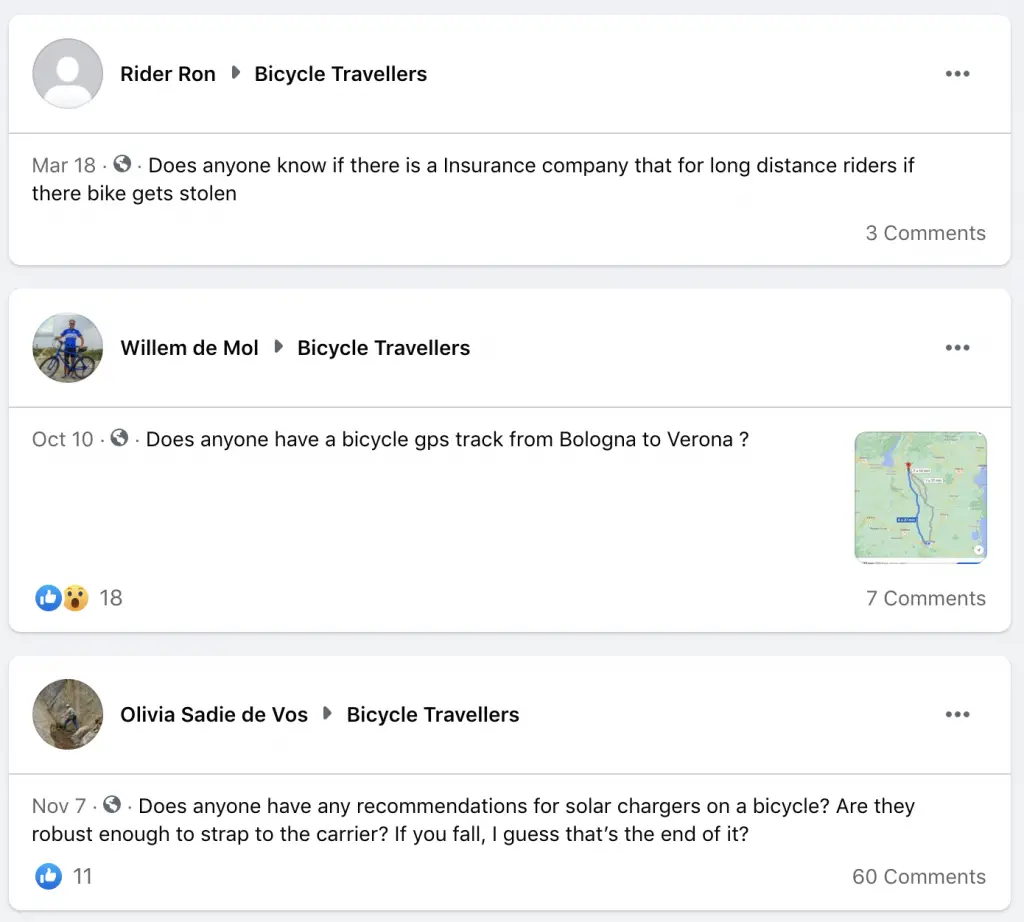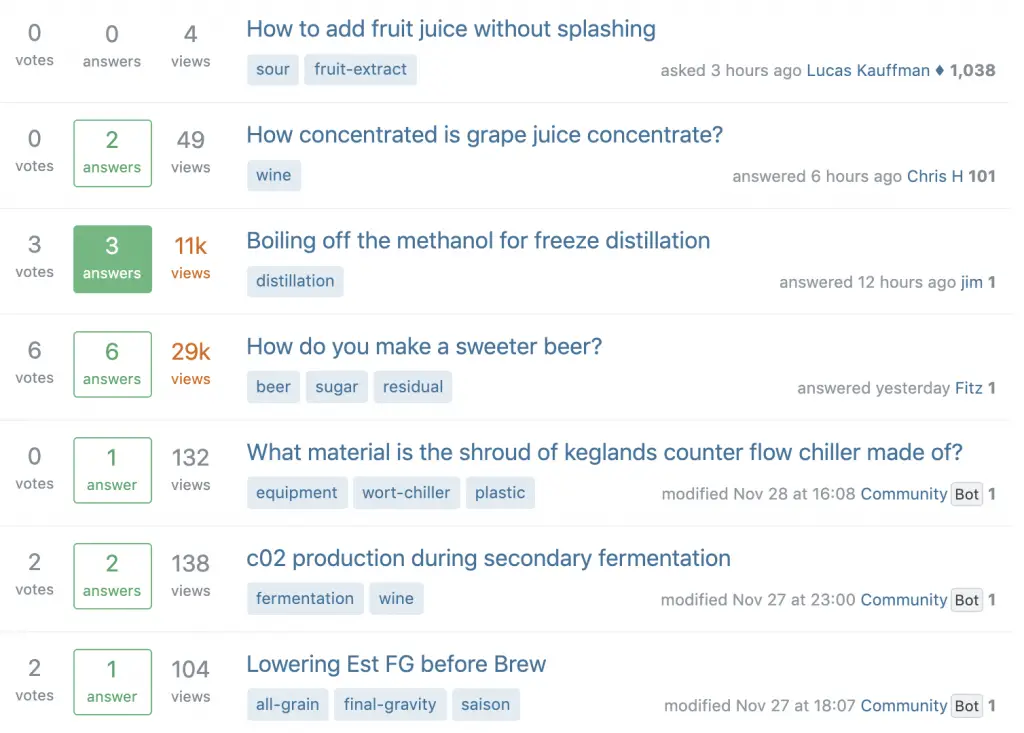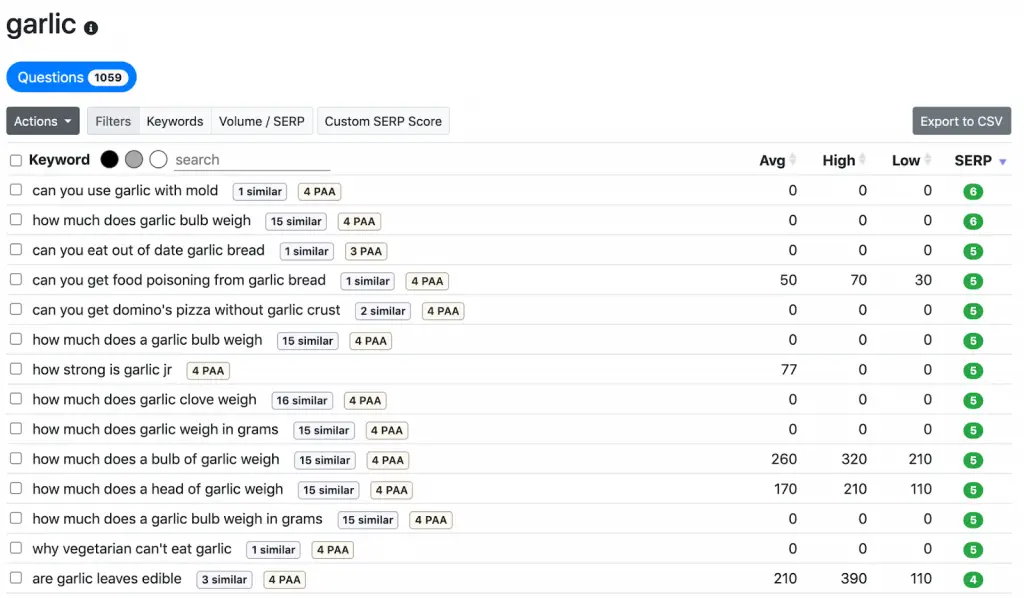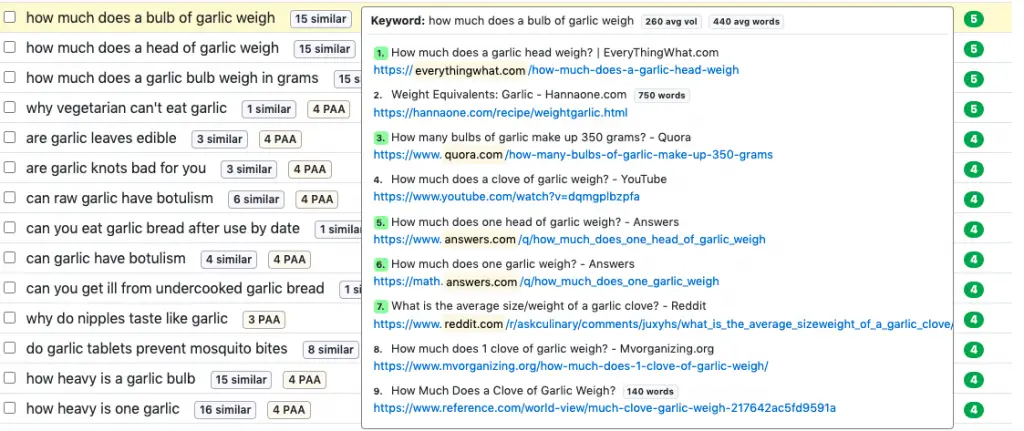If you’ve been doing SEO keyword research for some time, then, you know how attractive low competition keywords can be for both website rankings and traffic.
However, it can take some skill and experience to know how to find low competition keywords for SEO quickly and easily.
Oftentimes, just plugging your topic into a popular keyword tool might not work as well as you planned, and not to mention many of the tools are inaccurate when it comes to competition analysis.
To find these hidden gems, a lot of times manual keyword research is best, which is what this article will cover.

What are Low Competition Keywords?
Low competition keywords are keywords that a website can rank for with little to no link building or a low domain authority because of little competition. The benefit of low competition keywords is that they’re easy to optimize for and can bring more qualified organic traffic to the website.
Knowing What Keywords to Search for
Before I share some of the best ways to find low competition keywords, I’d like to say keyword research works best when you are familiar with your niche.
A lot of keyword research is knowing what to search for in the first place.
For example, if you don’t know anything about sailing, you might not know what “spreaders” are. Being unfamiliar with such terms could mean that you are missing out on a lot of keywords in SEO.
Thankfully, becoming more familiar with your niche is easy.
There are sites like Reddit, Facebook groups, newsletters, blogs, and even used books from Amazon you can buy to get familiar with a subject.
Some of the best advice I can give you for starting the keyword research process is subscribing to these types of places and visiting them often to continually learn about your niche.
As you become more familiar with your niche, you can search for more specific terms and low competition keywords that aren’t immediately obvious.
Determining Low Competition the Right Way
While finding keywords is one thing, doing proper keyword competition analysis is another.
Keyword tools are often flawed when it comes to keyword difficulty, as they primarily look at a site’s authority.
Basing competition on authority might make sense at first, but there are two missing factors:
- Keyword Relevance: High authority websites can be outranked if their article doesn’t match search intent. For example, if an authority site is ranking for “how to store pizza in the fridge”, but their article is about baking pizza, then they can be easily outranked by a more relevant article.
- Keyword Optimization: Not all authority sites are well optimized. Reddit has a DA of 90+, but their articles are known to be easily outranked, even if the search intent is met. Why is this? Reddit and other types of forums have user-generated content. This means people who are adding content on these platforms are not focusing on keyword optimization to rank them for any particular search query. While there can be some very good information on these forums, they are often lacking in organization, details, images, and important ranking signals such as subheadings and internal links.
So when you are performing competition analysis for keywords, look at these two factors: relevance and optimization.
Forums ranking on the first page SERP is a fantastic indicator of low competition you can target (more on that later).
How to Find Low Competition Keywords for SEO
Let’s now move on to the steps for how to find low competition keywords for SEO.
Remember the places I mentioned above where you can learn about your niche?
Those also make for great places to find low competition keywords too. And while you are also finding keywords, you can easily do content research from these same places.
Here’s a list of some of my favorite places to explore:
1. Google Autosuggest
Google Autosuggest is the first place I go to when doing manual keyword research for keywords with low competition. This takes a little bit of skill to get right but it gets easier once you get the hang of it.
To use this method, head over to Google and start typing in phrases from your niche.
Here, I typed in “why do dogs” and found 10 suggestions.
These suggestions are all keywords that people are actively searching for. Google is providing you keywords for free, which is freakin fantastic.

To find the really good keywords, it’s worth being more specific. Instead of “why do dogs”, you can search for “why do dog paws” or “why do dog noses”.
Other phrases could be:
- how to wash a dog
- can I walk my dog
- why are dogs
You can even brainstorm a list beforehand of things to search for, like dog bones, dog toys, dog walking, etc.
2. Facebook Groups
Facebook groups can be another good resource to find low competition keyword ideas, but they can be a little cumbersome.
The reason why is Facebook is a social platform, so you’ll need to weed through a lot of posts to find topics that can be used for keywords.
Similar to the Google Autosuggest method above, you can search in popular groups for terms like “does anyone”, “what is”, or “question”.
Here are the results for a search I did for “does anyone”:

Some of these questions may be very specific. In these cases, consider if the keyword is popular enough to write an article about.
Here are some more keywords I found in a bikepacking group:
- Does anyone ride with herb on them? I worry about riding through states where it is not legal. Should I just avoid those states?
- Does anyone take their dogs with them? Any tips?
- Does anyone use an internal gear hub for touring?
- Does anyone have experience with a cart behind their bike for bikepacking?
- Does anyone know any good routes for cycling and camping in British Columbia?
What I also like to do is join a dozen or so groups in my niche. That way, I’ll see posts from the groups in my feed. This is what I call “passive learning” and is a great way to become more familiar with your niche while doing minimal work.
3. Reddit
Reddit is another popular place to do keyword and topic research. It works very similar to Facebook groups where you can search for terms inside subreddits.
When you are browsing a subreddit in your niche, you can search for terms like we discussed before.
Here I found some great topics to write about by searching for “how can I”:

4. Stack Exchange
Stack Exchange is a fantastic resource for particular niches. Not every niche is in this user community, but for those that are, there are some great low competition keyword ideas to find.
The reason why Stack Exchange works so well is, unlike Facebook groups or Reddit that have a social aspect to it, Stack Exchange is more expert-focused. This means you’ll often find higher-quality questions and answers.
First, head over to their list of sites. They have everything from photography, parenting, 3D printing, and more. Some communities are going to be more popular than others.
Below is a list of questions from the homebrewing community. You can even filter questions by popularity or the most recent.

5. Keyword Chef
While all the above ways are great to find hidden keywords, I built my own product called Keyword Chef.
Keyword Chef digs deep finding lots of long tail keywords that often have little competition. It also filters out a lot of the junk keywords that publishers would never want to target.
Aside from the easy interface, what makes Keyword Chef work so well for low competition keywords is that it does a better job at competition analysis. The software analyzes the SERPs for each keyword and finds which ones have forums ranking on the first page results, and gives you a SERP Score.
Looking for such sites is a great sign that you can rank a keyword without backlinks. If you’re unfamiliar with this term, check out this article on the difference between referring domains and backlinks.
It also saves hours of time from having to analyze the SERPs in Google for every keyword you’re interested in.
For example, here are some great keywords related to garlic:

If we hover over the SERP Score for “how much does a bulb of garlic weigh”, we can see there are several easy sites to outrank on the first page of Google’s search results—a great sign of low competition and a great keyword volume too!

You can see how fast Keyword Chef found these low competition keywords with minimal effort and how it cuts down on the amount of time it takes to perform manual keyword research. You can learn more about Keyword Chef on my free SEO keyword tools list.
What About Zero Search Volume Keywords?
A lot of the methods for finding low competition keywords will return phrases and terms that often have 0 search volume.
Does that mean these keywords will get zero traffic?
Not exactly.
Many times these 0 volume keywords can bring in hundreds of visits per month.
The reason why these keywords often get 0 search volume is because of the way the keywords are worded. Google is smarter now and is able to return more relevant results to users from a variety of queries that mean essentially the same thing. In this way, it’s good to start thinking of keywords in terms of topics rather than exact matches.
Finding Low Competition Keywords for SEO Summary
As I mentioned in this guide on how to find low competition keywords for SEO, it’s often best to avoid popular keyword research tools. Manual keyword research can uncover lots of keywords that these tools miss.
Even zero search volume keywords can bring in good traffic for little effort, so it’s important not to dismiss these phrases and terms.
And remember, competition analysis works best when performed manually by looking at the SERPs. Ask yourself: 1) Do the sites match the search intent? 2) Are these articles well optimized?
The answer to those two questions can help guide you on which low competition keywords are the best choices to focus on the achieve easier rankings and traffic.
Contributing Author: Ben Adler
Ben Adler is the founder of Keyword Chef and has been creating websites since 2015. His focus is on keyword research, content creation, and community building.


SEO Chatter is dedicated to teaching the fundamentals of search engine marketing to help marketers understand how to increase organic website traffic and improve search engine rankings.
